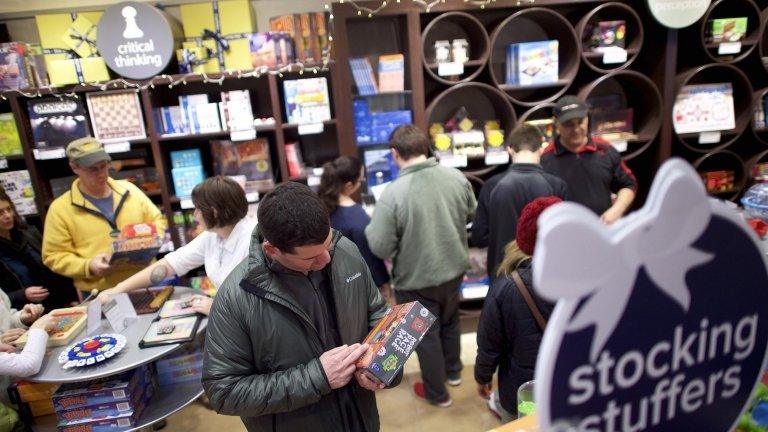US growth slows in fourth quarter
- Published
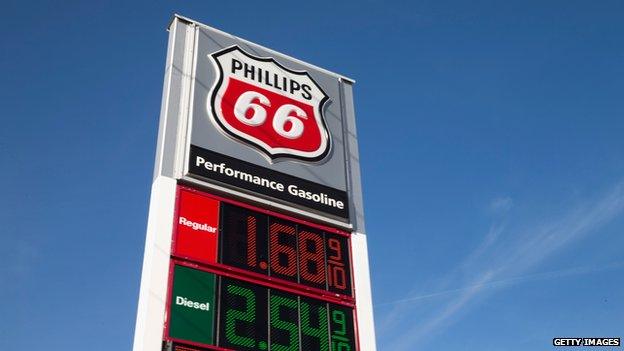
Lower fuel prices put more money in consumers' pockets in the last three months of 2014
The world's largest economy expanded less than expected in the final three months of 2014 despite lower fuel prices boosting consumer confidence.
The US posted annualised growth of 2.6% for the fourth quarter - lower than the 3% projected by economists.
The figure was weaker than the 5% growth in the third quarter of 2014.
However, the dramatic slide in fuel prices in recent months has put more money in consumers' pockets and allowed them to spend more.
Consumer spending, which accounts for more than two-thirds of US economic activity, rose by 4.3% in the fourth quarter - the fastest rise in nearly nine years - and higher than the 3.2% for the third quarter.
Fuel savings
Mark Zandi, chief economist at Moody's Analytics, said: "It took us a while to get here, but I think the economy is finally off and running.
"We are seeing a number of positive developments. Businesses are hiring aggressively and the big drop in gas prices means that people have more money to spend on other items."
The near-60% slide in oil prices in the plast seven months has cut the price of petrol to about $2 per gallon, or the equivalent of £1.32 for 4.5 litres. That is little more than British drivers pay for just one litre of petrol.
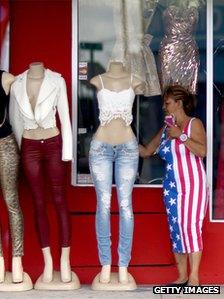
US consumer spending rose 4.3% in the final three months of 2014.
The fall has saved Americans about $175bn, Mr Zandi said: "A big part of growth this year will be people spending their gas savings."
For 2014 as a whole, the economy expanded by 2.4% - better than the 2.2% for the previous 12 months.
The report came two days after the Federal Reserve said the US economy was expanding at a "solid pace", but said it will "remain patient" in determining when to raise interest rates. The main rate has been held at close to zero since December 2008.
Weaker outlook
Some economists believe an increase could come in middle of the year, but Chris Williamson, chief economist at Markit, said Friday's data could delay a rise until late this year or even early 2016.
He feared that the US economy was too reliant on consumer spending given that business investment fell by an annualised rate of 1.9% - the biggest decline since the second quarter of 2009. "Ideally, a sustainable economic upturn requires business spending to be rising alongside consumer expenditure."
"While Markit's Flash PMI survey data signalled a further robust expansion of private sector business activity in January, the latest reading was the second weakest for 11 months and points to GDP growth sliding to 2% in the first quarter," Mr Williamson added.
"Companies also reported the weakest monthly increase in new orders since the recession, suggesting the pace of economic growth could weaken even further in February."
- Published23 December 2014
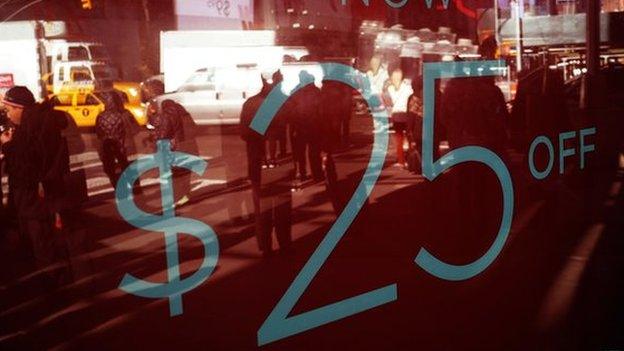
- Published28 January 2015
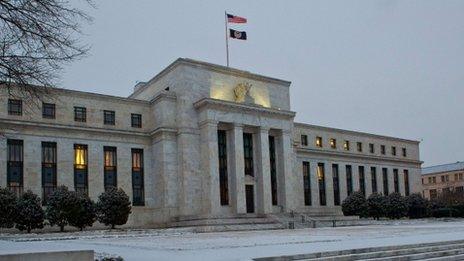
- Published14 January 2015
